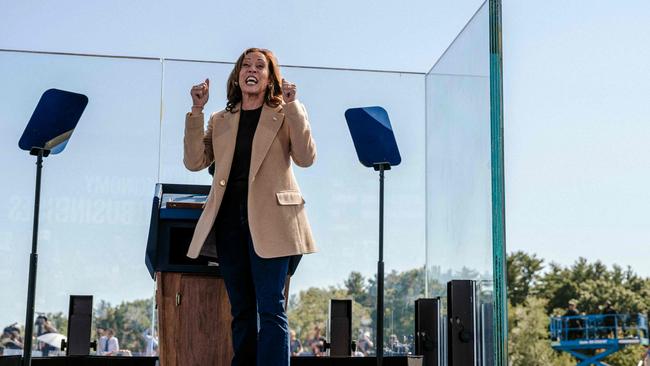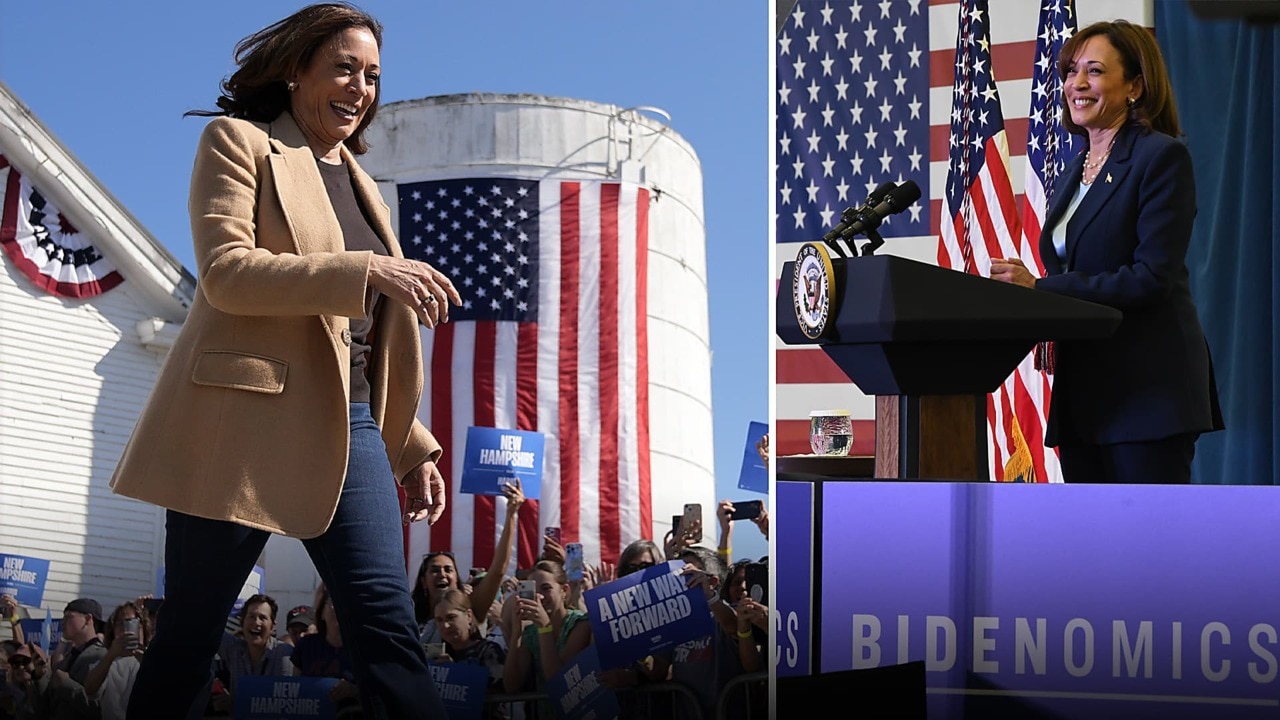
Harris might be many things, but neither she nor the Democratic Party, are anti-business or anti-risk taking.
Her latest economic policy announcement on Wednesday (Thursday AEST), to dump Joe Biden’s plan to hike capital gains tax to 44 per cent for households earning more than US$1 million a year, instead opting for a 33 per cent rate for assets held for more than one year, is political pragmatism.
It makes barely any difference to any fiscal forecasts given capital gains tax receipts are mostly dependent on asset prices shifts, which even the US government can’t directly control, and the top 0.1 per cent of US households make up more than half of US capital gains declared, according to the Tax Policy Centre, a think tank.
The US is a shockingly unequal society by Australian standards.

But Harris’s move in New Hampshire does helpfully neutralise Trump’s attack on her as an economic extremist ahead of next Tuesday’s (Wednesday’s AEST) first, and so far only, debate between her and Trump, during which the former president is bound to bring up her father’s tenure as a Marxist professor of economics at Stanford University.
It also should help invite more donations to Democrats from the big end of town, some of whom might believe Trump’s nonsense about Harris’s being a communist.
Harris as president might trim forecast capital gains tax rates, in the unlikely event the next Congress agrees with her, but she’ll have to lift them elsewhere.
The US has a massive shortfall in revenue given its spending commitments. It’s borrowing a trillion US dollars every 100 days, which is crazy and unsustainable for too many more years. It’s not clear interest rates will fall much, in Australia or the US; indeed, the US is set to spend more on interest on its debt than its defence force.
So taxes are more likely to go up, whether through rampant inflation or through direct taxation, than down.
This is the elephant in the room that neither side wants to acknowledge. US fiscal policy is in fact driving the global monetary system over a cliff, which relatively lightly taxed, and fiscally prudent, Russia and China are only too happy to encourage.
The US government’s public debt is already well above 100 per cent of GDP, the highest it’s been since the Second World War, and Harris has hinted at costly expansions of family welfare and Medicare.
The only interesting thing about Harris’s announcement is the proof of one thesis: that the Democratic Party and Republican Party will in future years flip on their attitude to taxation, as the wealthy increasingly back Democrats and the working-class favour Republicans.
Trump cut taxes during his first term, and promises to do so again in any second one. Don’t count on it.






Donald Trump routinely slams Kamala Harris as a ‘communist’ but it’s a ridiculous accusation, which should be obvious applied to a former California senator from tech start-up ground zero, San Francisco, whose brother-in-law is one of the most senior executives at Uber.